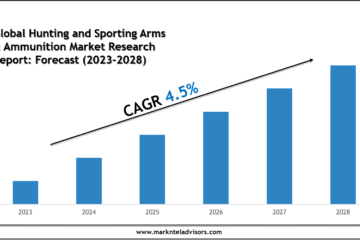The global plant-based meat market is projected to reach a staggering US$39.28 billion by 2033, a significant jump from US$8.77 billion in 2024. This remarkable growth, representing a compound annual growth rate (CAGR) of 18.12%, is driven by a fundamental shift in how consumers view food. People are increasingly seeking sustainable, health-conscious, and ethically sourced alternatives to traditional animal products. This trend is not just a passing fad; it’s a global transformation of the food industry.
Request a free sample copy of the report: https://www.renub.com/request-sample-page.php?gturl=plant-based-meat-market-p.php
What Is Plant-Based Meat?
Plant-based meat products are designed to mimic the taste, texture, and appearance of conventional animal meat, but they are made exclusively from plant-derived ingredients. Commonly used components include soy, pea protein, wheat gluten, and various vegetables, which are processed using advanced techniques to replicate the fibrous structure of meat.
This innovative food category offers a sustainable alternative to traditional meat production, which is often associated with significant environmental and ethical concerns. The rise of plant-based meat is a direct response to issues like animal welfare, high cholesterol, and the substantial environmental footprint of livestock farming.
Beyond mimicking meat, these products serve a wide range of culinary applications. They can be found as substitutes for beef, pork, poultry, and seafood in popular dishes like burgers, sausages, meatballs, and nuggets. They appeal not only to vegetarians and vegans but also to the growing number of “flexitarians” who want to reduce their meat consumption for health, environmental, or ethical reasons. As a result, plant-based products are becoming a common sight in restaurants, grocery stores, and even fast-food chains worldwide.
Key Drivers Fueling Market Growth
Several powerful trends are propelling the plant-based meat market forward.
The Push for Sustainable and Ethical Products
One of the most significant drivers is the growing awareness of animal agriculture’s environmental impact. Traditional meat production is a major contributor to greenhouse gas emissions, deforestation, and water consumption. With livestock accounting for approximately 15% of global greenhouse gas emissions, and that number expected to rise, consumers are actively seeking more eco-friendly options. Plant-based meats offer a solution, as they are up to 120 times more carbon-efficient than their animal-based counterparts. This increasing demand for ethical and sustainable food choices is accelerating the adoption of plant-based products worldwide.
The Rise of Health-Conscious Consumers
As people become more proactive about their health, they are looking for ways to reduce their risk of chronic diseases like heart disease, obesity, and diabetes. Unlike animal meat, plant-based alternatives are generally low in saturated fats and contain no cholesterol. This healthier profile makes them an attractive option for consumers seeking to maintain the texture and flavor of meat without the associated health risks. This trend is so strong that major companies are taking notice. For example, in December 2023, Nestlé’s Garden Gourmet partnered with the International Olympic Committee to include its plant-based products in the 2024 Olympic and Paralympic Games, promoting their consumption on a global stage.
Technological Innovation in Food Production
Advances in food technology have been crucial to the success of plant-based meats. Sophisticated processing techniques, improved flavor compounds, and methods to create more realistic textures have made these products far more appealing to a broader audience. Companies are heavily investing in research and development to create products that closely replicate the taste and feel of animal meat, attracting even traditional meat-eaters. Innovations like lab-grown plant-based meats and advanced meat analogs are constantly expanding the market and enhancing product diversity. A recent example is the partnership between Prime Roots and Three Little Pigs in January 2024, which brought plant-based pâtés to the New York market.
Get Customization in the Report: https://www.renub.com/request-customization-page.php?gturl=plant-based-meat-market-p.php
Major Challenges Facing the Market
Despite its rapid growth, the plant-based meat market faces some significant hurdles.
High Production Costs
A major challenge is the high cost of production. The premium ingredients used, such as high-quality plant proteins and specialty flavorings, are often more expensive than those for traditional meat. Furthermore, advanced production technologies like fermentation and specialized processing add to the expense. These costs are often passed on to consumers, making plant-based meat products less affordable than their animal-based counterparts and limiting widespread adoption.
Consumer Perception and Acceptance
While interest is growing, consumer acceptance remains a significant challenge, particularly among traditional meat-eaters. Many people are skeptical about the taste, texture, and nutritional value of plant-based alternatives. In some cultures where meat consumption is a deeply ingrained tradition, plant-based products face additional resistance. Overcoming these perceptions will be key to the long-term success and widespread acceptance of the market, requiring a combination of better marketing, consumer education, and continued product innovation.
Global Market Snapshot: Regional Dynamics
The plant-based meat market is thriving across different regions, each with its own unique drivers.
- United States: A leader in the market, the U.S. is driven by a strong focus on health, sustainability, and ethics. Major companies like Beyond Meat and Impossible Foods are at the forefront of innovation, supported by robust distribution networks and widespread consumer awareness campaigns.
- United Kingdom: As one of Europe’s top markets, the UK is seeing a surge in consumer interest fueled by environmental and health concerns. The widespread availability of plant-based products in supermarkets and restaurants, combined with government support for sustainable food practices, makes the UK a key player.
- China: The Chinese market is rapidly adopting plant-based products due to a cultural shift towards vegetarian and flexitarian diets. Growing awareness of environmental impact and food safety concerns is driving demand, with both local and global brands investing heavily to cater to local tastes.
- Brazil: In South America, Brazil is emerging as a critical market. Consumer interest in health and sustainability is growing, and companies are leveraging the country’s large agricultural sector to innovate. Plant-based options are being introduced for popular local dishes, making them more accessible to a broader population.
- South Africa: The market in South Africa is experiencing steady growth, driven by health-conscious consumers and increasing awareness of environmental sustainability. Although still in its developmental stages, the market is expected to expand further due to rising food prices, growing concern for animal welfare, and the adoption of healthier diets.
Market Segmentation & Analysis
The plant-based meat market can be broken down in several ways to provide a comprehensive analysis:
- Source: The market is segmented by the primary ingredients used, including Soy, Pea, Wheat, and others.
- Meat Type: Products are categorized by the type of meat they emulate, such as Chicken, Pork, Beef, Fish, and others.
- Product Type: This segmentation includes popular formats like Burger Patties, Sausages, Nuggets and Strips, Ground Meat, Meatballs, and others.
- Distribution Channel: The market is analyzed by where products are sold: Food Retail, Food Service, and E-Commerce.
- Storage: Products are also classified by how they are stored: Refrigerated, Frozen, and Shelf Stable.
Leading Companies in the Market
The report provides a detailed analysis of key players, including their overview, recent developments, and revenue. Some of the top companies in this space include:
- Beyond Meat
- Conagra Brands
- Maple Leaf Foods Inc.
- Tyson Foods Inc.
- Kellanavo
- Archer Daniels Midland
- US Foods Holding
- Hormel Foods Corporation
About the Company: Renub Research is a Market Research and Consulting Company. We have more than 15 years of experience especially in international Business-to-Business Researches, Surveys and Consulting. We provide a wide range of business research solutions that helps companies in making better business decisions. We partner with clients in all sectors and regions to identify their highest-value opportunities, address their most critical challenges, and transform their businesses. Our wide clientele comprises major players in Healthcare, Travel and Tourism, Food Beverages, Power Energy, Information Technology, Telecom Internet, Chemical, Logistics Automotive, Consumer Goods Retail, Building, and Construction, Agriculture. Our core team is comprised of experienced people holding graduate, postgraduate, and Ph.D. degrees in Finance, Marketing, Human Resource, Bio-Technology, Medicine, Information Technology, Environmental Science, and many more.
Contact Us: Company Name: Renub Research Contact Person: Rajat Gupta Phone No: (D) +91-120-421-9822 (IND) Email: rajat@renub.com





